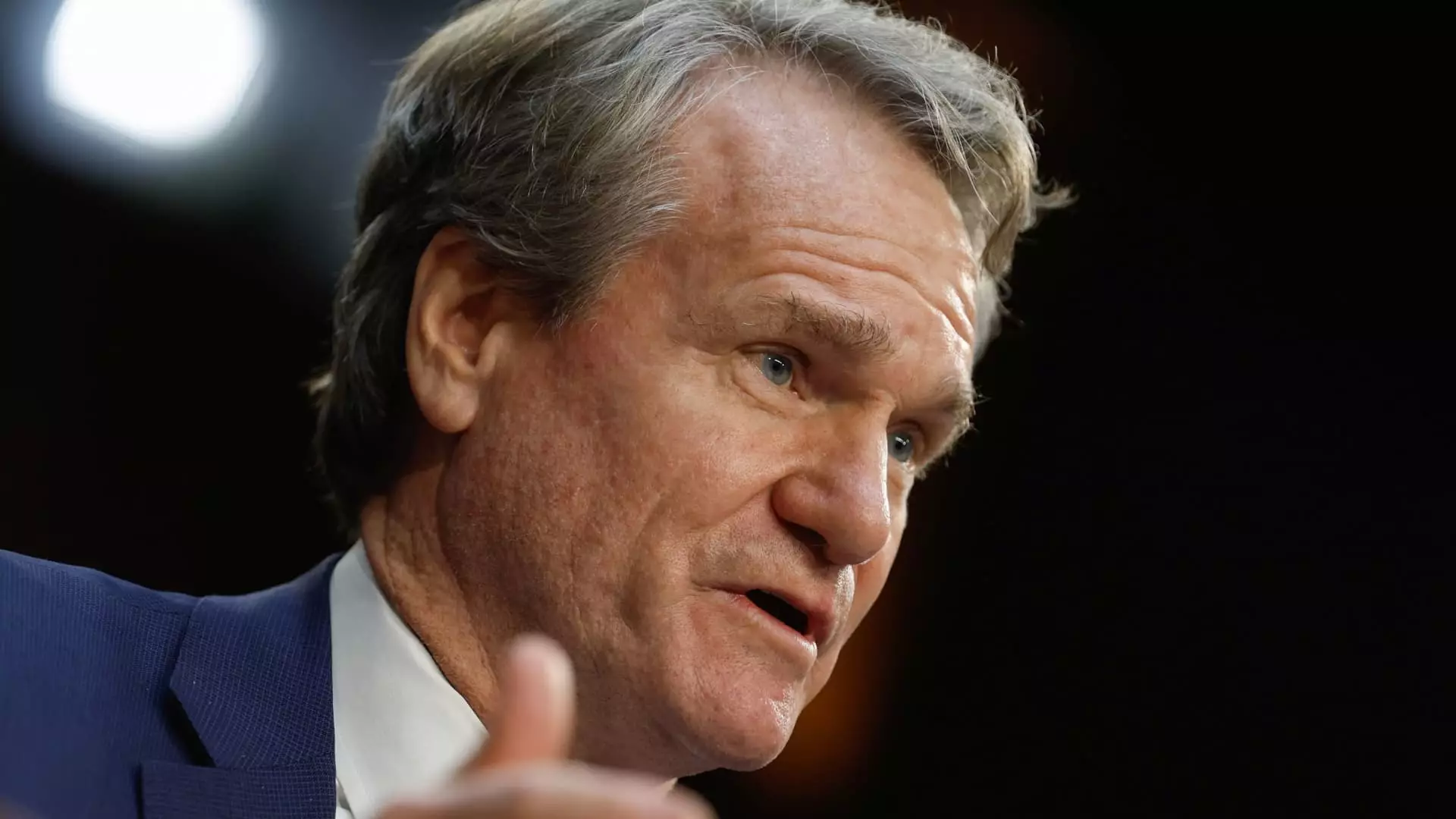In a recent financial conference, Bank of America CEO Brian Moynihan highlighted a noticeable shift in consumer and business spending patterns in the United States. It appears that both individuals and small- to medium-sized businesses are becoming more cautious with their expenditures due to elevated levels of inflation and interest rates. Moynihan pointed out that there has been a significant slowdown in the rate of purchases across various sectors, including hard goods and software.
According to Moynihan, consumer spending through card payments, checks, and ATM withdrawals has only grown by approximately 3.5% this year, reaching around $4 trillion. This rate of growth represents a substantial decline from the almost 10% increase observed in May 2023. It is evident that consumers are actively trying to manage their finances more carefully in response to the current economic environment.
Similarly, small- and medium-sized businesses are experiencing challenges related to inflation and borrowing costs. Moynihan noted that many business owners are scaling back on hiring, equipment purchases, and software acquisitions. These decisions reflect a more conservative approach to managing operations in the face of economic uncertainty.
The effects of the changing consumer and business behavior are being felt across different industries. For example, food shoppers are now visiting more grocery stores in search of better deals, indicating a shift towards more cost-conscious purchasing habits. Additionally, businesses in sectors such as travel and entertainment are still seeing growth, while others, like rent payments, are experiencing a slowdown.
Looking ahead, Moynihan and his team of economists predict that inflation will remain a challenge for the economy until the end of next year. They anticipate that the Federal Reserve will start lowering interest rates later this year in an effort to stimulate economic growth. Despite these adjustments, the U.S. economy is projected to sustain a growth rate of around 2%, avoiding the risk of a recession.
The impact of inflation and interest rates on consumer and business spending is a critical issue shaping the current economic landscape. As consumers and businesses navigate through these challenges, it is essential for financial institutions, policymakers, and other stakeholders to monitor these trends closely and adapt their strategies accordingly. The decisions made in response to these economic conditions will play a significant role in determining the future trajectory of the U.S. economy.


Leave a Reply